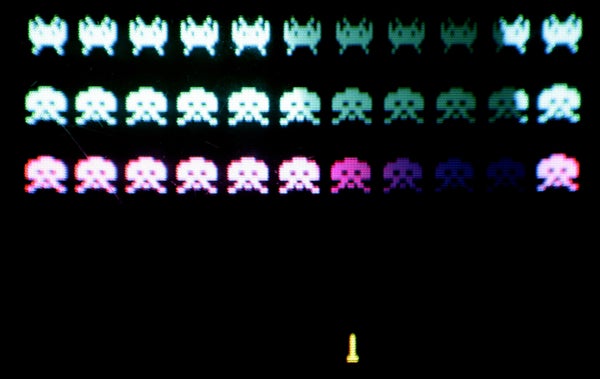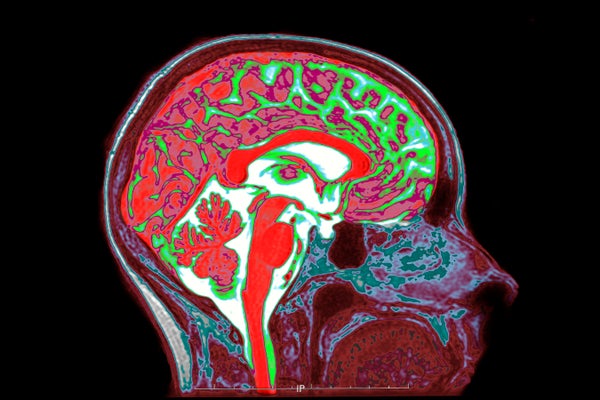Blasting Virtual Aliens Could Help Dyslexic Kids Parse Words
Children at risk of dyslexia who played Space Invaders Extreme 2 showed improvement at a word-identification task
A view of the classic video game Space Invaders
Peter Macdiarmid/Getty Images
In the video game Space Invaders Extreme 2, a player has to fire weapons to obliterate aliens attacking Earth. These extraterrestrials move fast, raining down from the top of the screen and claiming a player’s “life” if they reach the bottom.
A study in Nature suggests such games may help children at risk for developmental dyslexia—a genetic neurological condition that makes processing words difficult—by improving their ability to perceive spoken words and sounds. Destroying digital aliens might seem unrelated to distinguishing between words. But past research has shown that action video games, which a person needs swift cognitive and motor skills to master, activate attention-controlling parts of the brain that process memory.
For the new study, 79 prereading children with family histories of dyslexia took several language tests, including listening for differences in made-up words—a task that can be challenging for dyslexic people. The kids were then split into four groups. One played Space Invaders Extreme 2, a second played a nonaction video game, a third attended speech therapy (the usual treatment for language disorders in Italy, where the study took place), and a fourth received no intervention. Gamers played four times a week for 45 minutes each over a month and a half, and those in speech therapy attended 45-minute sessions twice weekly over about four months.
On supporting science journalism
If you’re enjoying this article, consider supporting our award-winning journalism by subscribing. By purchasing a subscription you are helping to ensure the future of impactful stories about the discoveries and ideas shaping our world today.
By the end of the trial more than 80 percent of the Space Invaders players were significantly better at the word-identification task than before, and they showed greater improvements than any of the other three groups. The researchers aren’t sure why games boosted this specific task—scores on the other language tests did not improve notably—but they say this finding could be valuable. “If we can target these small cognitive functions before children are older and lose some brain plasticity, then perhaps we can treat [aspects of dyslexia] before they’ve fully formed,” says study co-author Simone Gori, a neuroscientist at the University of Bergamo in Italy.
Dyslexia often goes untreated in Italy’s overburdened public health and school systems, says Marilu Gorno Tempini, a behavioral neurologist at the University of California, San Francisco, who is from Italy. She says this research offers promise for early-childhood intervention, and she hopes to see larger future studies conducted in other languages as well. The new study is one of the first of what Khizer Khaderi, a Stanford University neuro-ophthalmic surgeon, predicts will be many to demonstrate that video games can help people with learning disorders. “Eyes are an extension of the brain,” he says, “so when we play video games, it’s directly connected to our cognitive function—and there is so much research potential there.”








:quality(85):upscale()/2024/05/21/843/n/49351759/1b28be85664cf28ef0ec06.39361637_.jpg)






